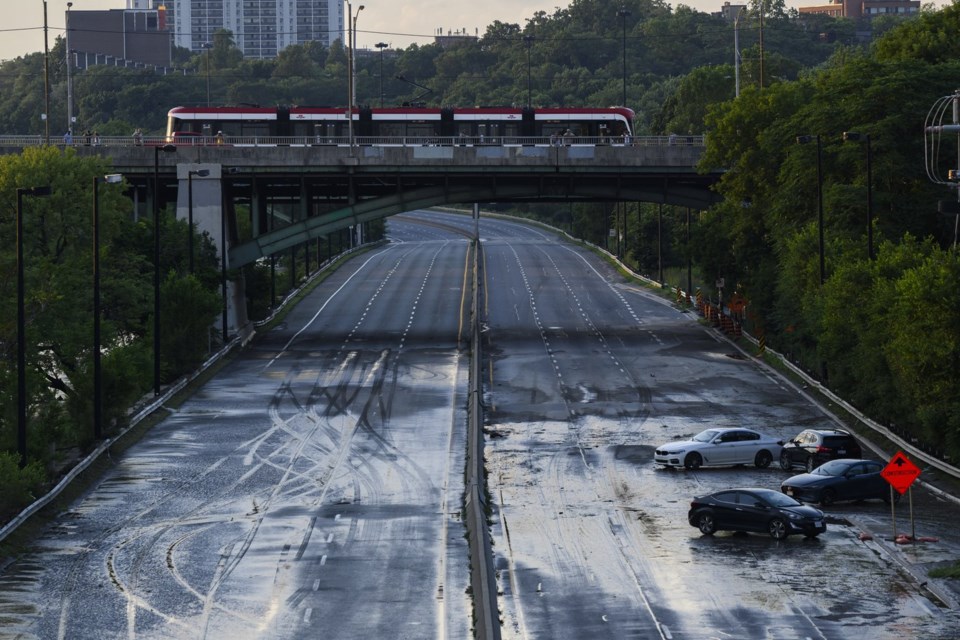TORONTO — Summer of 2024 is now Canada's most destructive season on record for insured losses due to severe weather events, the latest estimates from the Insurance Bureau of Canada show.
Damages for a group of storms and wildfires across the country combined to more than $7 billion in insured losses, topping the $6.2 billion cost of the Fort McMurray, Alta., wildfire in 2016.
That's 10 times higher than the average $701 million per year for severe weather losses between 2001 and 2010, the report said.
"This has been a devastating summer for hundreds of thousands of Canadians," said IBC president and CEO Celyeste Power, in a release.
Wildfire in Jasper, Alta., flooding in southern Ontario and Quebec, and an Alberta hailstorm resulted in about 228,000 insurance claims, which is up 406 per cent compared with a two-decade average, she added.
"These events are escalating at a shocking rate and Canada is simply not prepared," she said.
Flooding in regions of Quebec amounted to $2.5 billion in insured damage while flooding in Toronto and other parts of southern Ontario cost $940 million. In Alberta, Calgary's hailstorm caused $2.8 billion in losses and Jasper wildfires saw insured losses of $880 million. All four severe weather events occurred in the months of July and August.
The agency said it has been asking provincial and federal governments to respond to climate change as a crisis and collaborate in reducing disaster risk.
It added the federal-provincial debates on how best to reduce emissions have overshadowed efforts to co-ordinate and invest in climate adaptation.
"Insurers are now paying out more in claims for a single event than the $1.9 billion that the federal government has allocated to climate adaptation over the past decade," said Craig Stewart, vice-president of climate change and federal issues at IBC.
He emphasized the need to support resilient building so insurance is available and affordable for homeowners. That means upgrades to stormwater infrastructure, and programming to help fire- and flood-proof new and existing homes.
The bureau says severe weather in 2023 caused more than $3.6 billion in insured damage across Canada.
This report by The Canadian Press was first published Sept. 24, 2024.
The Canadian Press



